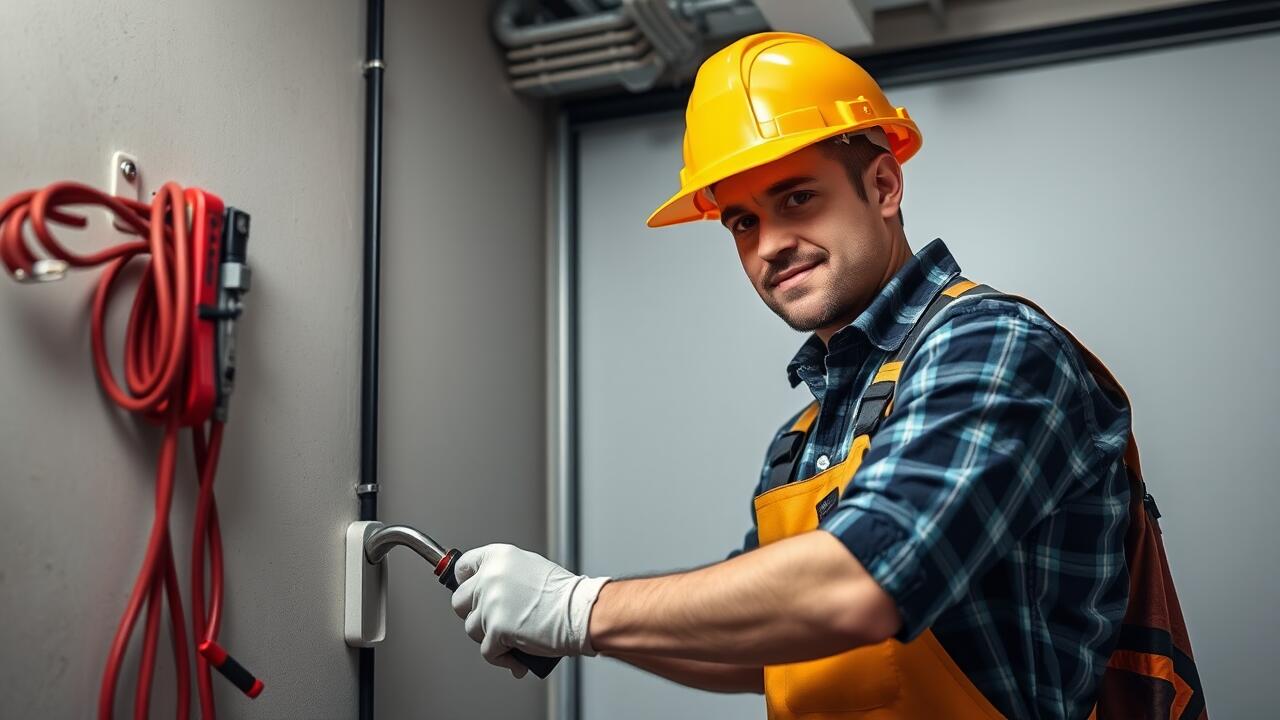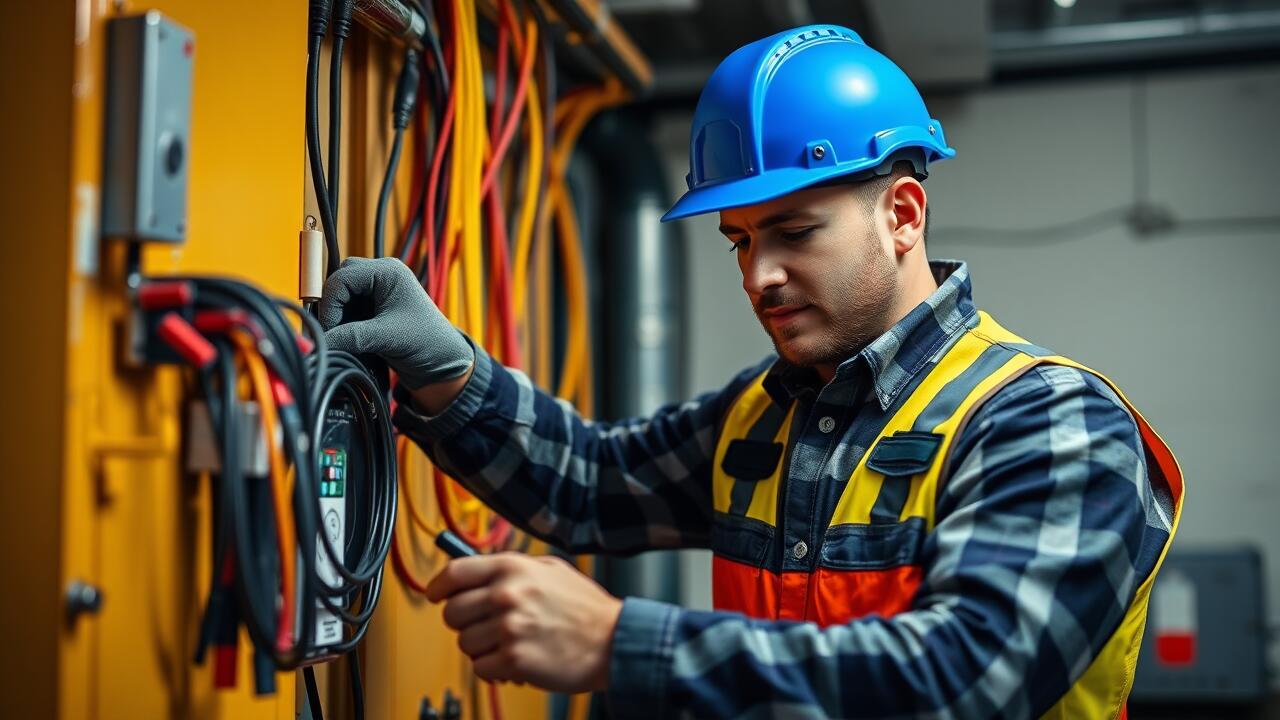
Career Pathways for Electricians
Electricians in Texas can follow various pathways to develop their careers, beginning with obtaining their licenses and gaining hands-on experience. Starting as an apprentice offers valuable training under the guidance of experienced professionals. This stage enables individuals to understand the nuances of the trade while fulfilling the required hours mandated by the Texas Department of Licensing and Regulation. Many aspiring electricians may consider a technical school or community college to enhance their skills and knowledge, further preparing them for their journey.
After achieving journeyman status, options expand significantly. Electricians can choose to specialize in specific areas like residential, commercial, or industrial work, determining their niche within the industry. A role as an Electrician in Alief, Houston, may lead to opportunities for project management or supervisory positions, further elevating career prospects. Additionally, pursuing further certification can provide an edge in the competitive job market, allowing professionals to take on more complex projects and increase their earning potential.
Opportunities After Journeyman Certification
After achieving journeyman certification, electricians open doors to various career opportunities that can enhance their skills and increase their earning potential. Many choose to specialize in specific areas such as industrial, commercial, or residential electrical work. This specialization not only allows for greater expertise but also enables electricians to take on more complex projects, leading to increased job satisfaction and financial rewards.
Electricians can also explore supervisory or managerial roles within electrical contracting companies. Some may decide to start their own business, becoming independent contractors or consultants. The demand for skilled electricians remains robust, particularly in areas like West University Place, Houston, where urban development and renovation projects are plentiful. With their journeyman credentials, electricians are well-positioned to capitalize on these opportunities and advance their careers.
Comparing Journeyman and Master Electrician
Becoming a journeyman electrician signifies the completion of a rigorous apprenticeship program and a thorough understanding of electrical systems. Journeyman status allows individuals to work independently, providing services to clients and contributing to both residential and commercial projects. In Texas, licensed journeyman electricians are often employed in a variety of settings, making this role pivotal within the electrical trade. For example, an electrician in Bellaire West, Houston, may engage in wiring homes, installing lighting fixtures, or troubleshooting electrical issues for clients.
In contrast, advancing to a master electrician involves additional training and experience, leading to greater responsibilities and potential earnings. Master electricians are qualified to oversee projects, pull permits, and train new electricians. This level of expertise requires a deeper understanding of electric codes, safety regulations, and project management. A master electrician can assume a leadership role, with the ability to shape company policies and mentor apprentices. The distinctions between journeyman and master electricians reveal the growth opportunities available within the field, providing a clear pathway for those looking to advance their skills and careers.
Key Differences in Qualifications
The qualifications for a journeyman electrician and a master electrician differ significantly, primarily in terms of experience and education. A journeyman electrician typically completes a four to five-year apprenticeship program, which combines classroom instruction and hands-on training. After fulfilling these requirements, they can sit for the journeyman licensing exam. In contrast, becoming a master electrician requires additional experience, usually a few more years in the field, and a deeper understanding of electrical theory, codes, and advanced electrical systems.
A master electrician holds a higher level of responsibility and can oversee projects involving complex electrical systems. This designation allows them to pull permits, supervise teams, and manage larger jobs. For instance, an electrician in River Oaks, Houston, who has attained master status can take on more significant projects, ensuring compliance with local codes while guiding journeymen and apprentices through their work. The distinction between these two classifications underscores the varying levels of expertise and accountability in the electrical trade.
Continuing Education for Electricians
Continuing education is essential for electricians to stay up-to-date with the latest codes, technologies, and safety practices. Many states, including Texas, require licensed electricians to complete a specific number of continuing education hours to maintain their licenses. This commitment not only enhances their skills but also helps them adapt to the evolving demands of the industry. Electricians who take advantage of these opportunities can better serve their clients and ensure their work meets current standards.
For electricians working as an Electrician in Westchase, Houston, ongoing learning can open doors to advanced certifications and specialization in areas such as renewable energy or smart home technology. Workshops, online courses, and local seminars are invaluable resources for gaining knowledge and networking with other professionals. By investing in their education, electricians can position themselves for growth and increased earning potential in a competitive job market.
Importance of Ongoing Learning
Ongoing education plays a crucial role in the career of an electrician in Westchase, Houston. The electrical field is constantly evolving due to new technologies, updated safety regulations, and innovative techniques. By staying informed about these changes, electricians can ensure they are providing the best service and maintaining compliance with local codes. Regular training sessions, workshops, and courses can enhance skills and knowledge, making professionals more competitive in the job market.
Additionally, pursuing further education can open up new opportunities for career advancement. Electricians who engage in continuous learning may qualify for specialized positions, such as becoming an electrician supervisor or instructor. This not only enhances their professional standing but also increases earning potential. In Westchase, Houston, electricians who commit to lifelong learning demonstrate their dedication to their trade, which can lead to greater job satisfaction and personal growth.
FAQS
How long does it typically take to become a journeyman electrician in Texas?
It usually takes about 4 to 5 years to become a journeyman electrician in Texas, which includes completing an apprenticeship program and gaining the required work experience.
What are the main requirements to start an apprenticeship in Texas?
To start an apprenticeship in Texas, you typically need to be at least 18 years old, have a high school diploma or GED, and may need to pass a background check and drug test.
Is there a specific number of hours required for apprenticeship training?
Yes, in Texas, an electrician apprenticeship usually requires a minimum of 8,000 hours (approximately 4 years) of on-the-job training, along with 576 hours of classroom instruction.
Can prior experience count towards becoming a journeyman electrician?
Yes, some prior experience in related fields may be considered, but it ultimately depends on the apprenticeship program and the specific training requirements of the Texas State Electrical Board.
What exams must be passed to become a journeyman electrician in Texas?
After completing the apprenticeship program, candidates must pass the Texas journeyman electrician exam, which tests knowledge of electrical code, theory, and practical application.




